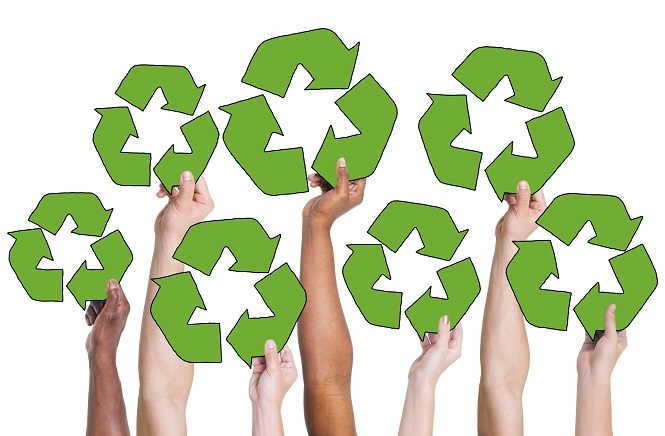Contact your elected officials
Determine what government body oversees waste collection and recycling in your community. In most states that responsibility is delegated to the county, but that’s not always the case.
Once you’ve determined who controls recycling services, contact your elected officials to let them know about your concerns. It always helps to have concrete suggestions (which is one reason why you should educate yourself first). Instead of calling and saying, “I want more recycling,” let them know you’d like to see them implement year-round e-waste collection or oppose building a so-called “waste to energy” facility (really an incinerator) in your town.
Ask your elected official for any advice on how you can help advance or stop programs that will help or hinder the growth of recycling in your community. Follow up with them – not enough to be a nag but often enough that they know you still care about the issue.
Join a committee
Does your city, county or state have an advisory committee or oversight board for recycling, reuse or composting? See if you can join it and share your opinions that way. Austin and San Diego have zero-waste advisory committees. Most counties in Indiana have Citizen’s Advisory Committees that research and give advice on recycling and other environmental issues.
Join an advocacy organization
Joining a nonprofit advocacy organization can help you fight for more recycling in many ways. They can provide information and training on issues and advocacy. They help you strengthen your voice by adding it to the many voices already demanding the same things. They can provide policy suggestions and tools to help people in your community take their desire for more recycling and transform it into action.
Most other national advocacy organizations are trade associations that encourage businesses to join. However, the
Grassroots Recycling Network (GRRN) is a great organization for people interested in increasing recycling or moving their community toward zero waste. It’s open to individuals as well as businesses.
Many states have local organizations dedicated to advocacy around recycling. In Oregon, there’s
Recycling Advocates. In Minnesota, there’s the
Recycling Association of Minnesota.
The
Electronics TakeBack Coalition maintains a list of advocacy organizations that are working specifically on e-waste collection programs.
Set up a recycling collection program
In some cases, you don’t need to wait for your city or county to start a recycling program. You can do it yourself.
TerraCycle is a private company that collects all kinds of difficult-to-recycle items. Think baby food and drink pouches, Solo cups, pens and markers, toothbrushes, beauty products and much more. It likes to receive recyclable items in large quantities, so it often encourages people to set up collection boxes in schools or businesses. Once your box is full, you mail it to TerraCycle for recycling. You also earn a reward for your participation.
GreenDisk is another example of a business that encourages bulk collection of recyclable items. It takes electronics and peripherals that most other organizations won’t, including VCRs, PDAs, floppy disks, flash drives, cassette tapes, black and white camera film, headphones and modems. To work with GreenDisk, you buy a special collection box from the organization. Once the box is full, you can send it for no additional charge.
Buy products and support service providers that recycle
There are big things you can do to increase your community’s recycling rate, but there are also small things you can do at home. The most important, again, is to “vote with your dollar.”
Before you purchase products, find out how easy they are to recycle once you’re finished with them. Whenever possible, buy from companies that take responsibility for their products when consumers no longer want them. If businesses start to see consumers care about recycling, they will respond with take-back programs and better product design.
If you need to purchase services, make sure your service providers believe in recycling. If you do a home remodel, make sure your contractor will recycle or reuse as much as possible. A friend of mine recently recommended a salon that recycles absolutely everything in their shop, including all the hair they’ve collected at the end of every day. By supporting businesses that share your values, you can go a long way toward getting your community to recycle even more.
 One of the most frustrating things about recycling is the rules around recycling vary so much from community to community. One county may have a permanent electronics recycling collection center, while another may rely on occasional collection events. One community may have plastic bag collection bins everywhere, while in a neighboring town you have to hunt all over for them.
What can you do to demand that your community recycle more? Here are several ideas.
One of the most frustrating things about recycling is the rules around recycling vary so much from community to community. One county may have a permanent electronics recycling collection center, while another may rely on occasional collection events. One community may have plastic bag collection bins everywhere, while in a neighboring town you have to hunt all over for them.
What can you do to demand that your community recycle more? Here are several ideas.